I hope that you can affirm this without reservation!
[The Most Reverend Robert F. Vasa, Bishop of Baker, Oregon, requires this affirmation of faith for all lay persons who hold positions of administration and teaching in his diocese.]
What a great bishop. This would have been the norm before the Council. Requiring that those who teach the Catholic Faith affirm it. Novel?
Affirmation Of Personal Faith *
“I believe and profess all that the holy Catholic Church teaches, believes and proclaims to be revealed by God.”
In particular:
I affirm and believe the Church’s teaching about the inviolability of human life. In accord with that teaching I affirm that human life is sacred and must be protected and respected from the moment of conception until natural death. I affirm that I reject direct, intentional abortion and I do not recognize the legitimacy of anyone’s claim to a moral right to form their own conscience in this matter. I am not pro-choice. I further attest that I am not affiliated with, nor supportive of, any organization which supports, encourages, provides or otherwise endorses abortion or euthanasia. (cf. CCC 2270-2283)
I affirm and believe the Church’s teaching about the sinfulness of contraception. I affirm, in accord with the teachings of the Church that “every action which, whether in anticipation of the conjugal act, or in its accomplishment, or in the development of its natural consequences, proposes, whether as an end or as a means, to render procreation impossible” is intrinsically evil. (CCC 2370)
I affirm and believe that every person is called to chastity in accord with their present state of life and that it is only in marriage between man and woman that the intimacy of spouses becomes a sign and pledge of spiritual communion. (CCC 2337—2365) I accept the Church’s teaching that any extra-marital sexual relationships are gravely evil and that these include pre-marital relations, masturbation, fornication, the viewing of pornography and homosexual relations.
I affirm and believe the teaching of the Church about the evil of homosexual acts. I accept the formulation in the Catechism which states: “Basing itself on Sacred Scripture, which presents homosexual acts as acts of grave depravity, tradition has always declared that “homosexual acts are intrinsically disordered.” They are contrary to the natural law. They close the sexual act to the gift of life. They do not proceed from a genuine affective and sexual complementarity. Under no circumstances can they be approved.” (CCC 2357)
I affirm and believe all that the Church teaches about the Reality and Presence of Christ in the Most Holy Eucharist. Specifically I believe that Jesus is present Body, Blood, Soul and Divinity under each of the forms of bread and wine and that receiving either one is Communion with the whole Christ. I recognize that worship and adoration are appropriate, not only during Mass but also outside of Mass and that the Most Holy Eucharist must always be handled with the utmost care and devotion. (CCC 1373-1381)
I affirm and believe the teachings of the Church regarding Mary, Mother of Christ and Mother of the Church. I accept with the Church that it is fitting and proper to honor the Blessed Virgin with special devotion. (CCC 963-975)
I affirm and believe that it is possible for a person to choose to remain separated from God for all eternity and that “This state of definitive self-exclusion from communion with God and the blessed is called “hell.” ” (CCC 1033)
I affirm and believe that those who die in God’s grace and friendship but are still imperfectly purified undergo additional purification so as to achieve the holiness necessary to enter the joys of heaven. I affirm that the Church’s name for this final purification is Purgatory. (CCC 1030-1032)
I affirm and believe in One, Holy, Catholic and Apostolic Church, and I embrace the teachings about the Church, as enunciated in the Catechism of the Catholic Church. (cf. CCC 748-962)
I affirm and believe that the Church teaches with God-given authority and that the promise of Christ to remain with His Church always, until the end of time, is a reality. I further acknowledge that those teachings pronounced in a definitive manner, even though not as an infallible definition, are binding on the consciences of the faithful and are to be adhered to with religious assent. (CCC 892)
To these and to all the teaching of the Catholic Church I give my assent. I attest that I believe these things and, while I am aware of my own sinfulness and shortcomings, I strive in my beliefs and life style to conform to this Affirmation of Personal of Faith.
* The Church requires the making of a Profession of Faith by various persons when they undertake specific duties related to Church administration and teaching. (cf. Canon 833) In the Diocese of Baker this has been expanded to include those who take on the ecclesial duties of Catechist, Liturgical Reader, Cantor, Extraordinary Minister of Holy Communion and other Church positions which entail a presumption of orthodoxy.
I can't help but think that there are many oath breakers serving in various positions of authority in the Church today if all bishops, priests and religious were mandated to take this oath. =)
![[Unam Sanctam]](https://blogger.googleusercontent.com/img/b/R29vZ2xl/AVvXsEiymQ2adTjpZ1ABhPBbBBquiPCxeQrc4Jy_97vOikT0wGQeJleriiXQy6ebnb0jrYe-TfvcK77txStB4aIwVAdD41ZdMkVfNtFGC0JX6LBV9B8mfeRZaIAM7Sj-011ag3DiKQzv/s1600/headerdivinemercy.jpg)












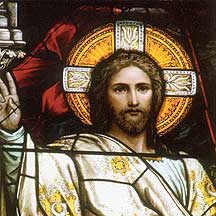







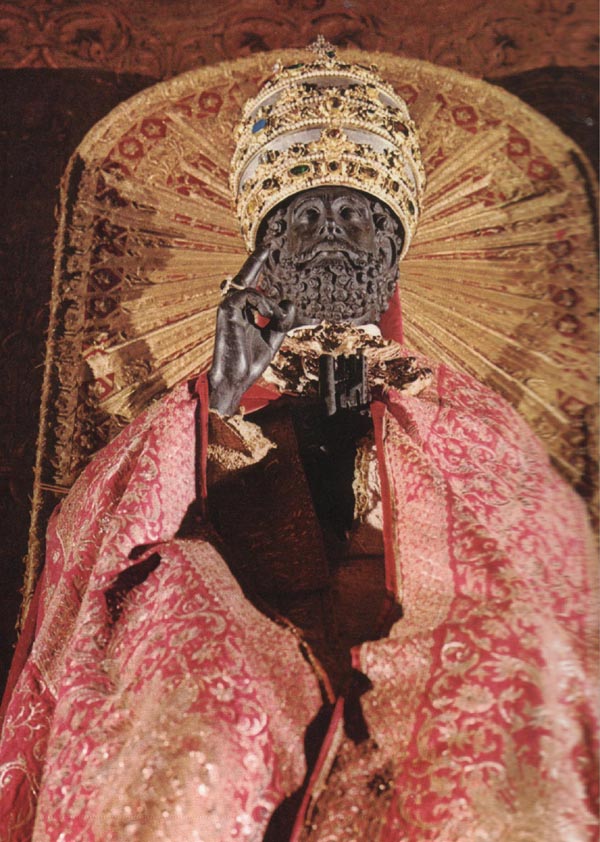
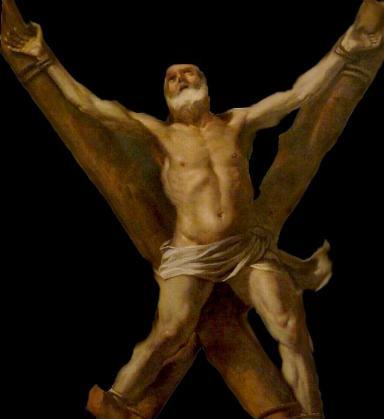




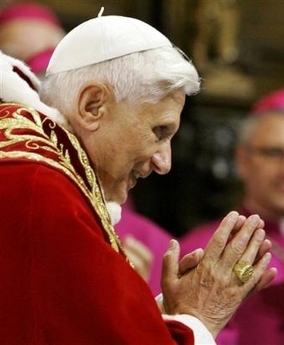






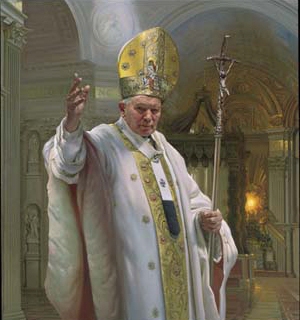
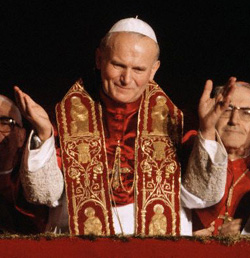
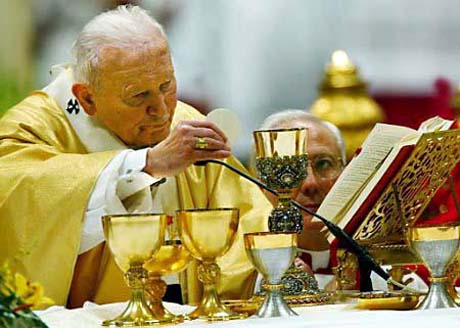







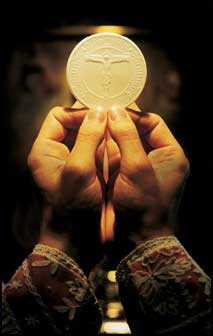
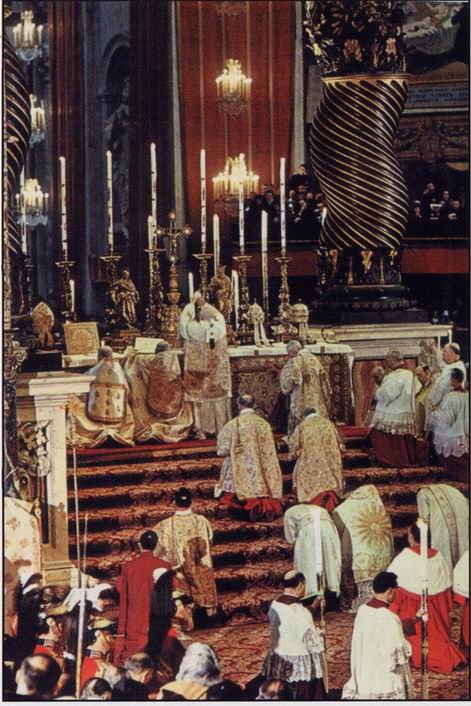

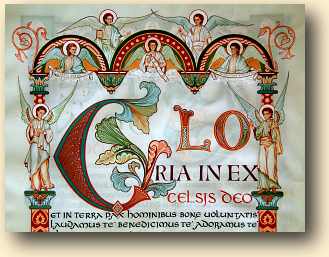

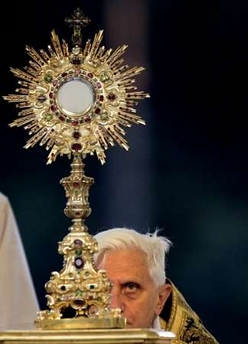


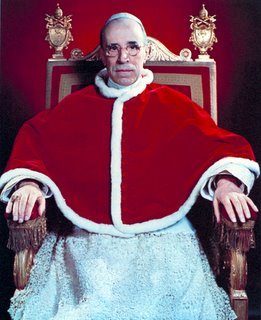




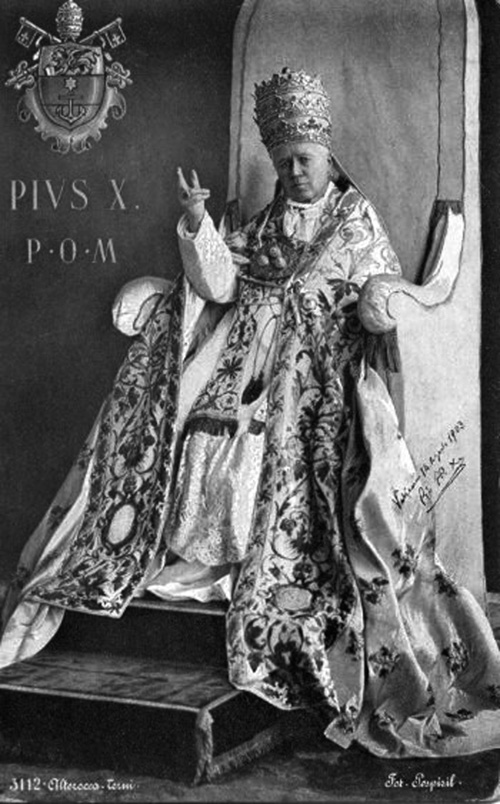



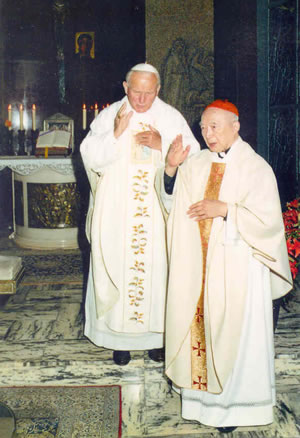






7 comments:
"Novel"? No, but in this day and age – especially in the United States of America – it certainly is bold.
I laud Bishop Vasa for his foresight and courage in promulgating this document.
It is a pity, however, that enforcement of its provisions is virtually non-existent. The bishop's responsibility for ensuring orthodox teaching is ipso facto dumped in the laps of his local pastors who must recommend to the bishop those who are to be certified for public ministry. But since so many loathe controversy (and this document has definitely proved controversial at the local level), what has resulted is a sort of "don't ask; don't tell" policy: "If in fact you do have a problem with any of these affirmations, don't tell me; if you submit your name to me for ministry, I'll just assume that you don't have such a problem, and will thus forward your name on to the bishop."
And so Extraordinary Ministers of Holy Communion and Directors of Religious Education and Pastoral Council members who continue to sport "Kerry for President" bumper stickers on their vehicles and disavow Humanae Vitae continue in their public ministries.
Any conscientious parishioner who objects to the obvious contradiction is branded by the pastor as a "troublemaker". The dissident continue to occupy "their" ministries. The faithful continue to be scandalized. The pastor keeps the peace and keeps the Sunday collections rolling in. And outside the diocese, the bishop basks in the reputation of being a hero of orthodoxy.
The Affirmation of Faith looks great on paper. But in the local parishes, it is an altogether different matter. The emperor, I posit, wears no clothes.
Thank you for the info on the situation on the ground. Personally, I'm floored and very disappointed.
The situation you described is reminiscent of what occurs in many other parishes throughout the world. I had thought that it would be different in Baker. Well, at least there's still Lincoln. There's still Lincoln right? Right? Please? =)
You're right, what's on paper remains on paper unless it's enforced. I'm reminded of JPII's Ex Cordae Ecclesiae. You need Bishops and priests with lots of intestinal fortitude to enforce it, regardless of scandal and unpleasantness. Aren't heretics teaching CCD scandalous?
But still, at least it's on paper. You can't enforce something that's not on paper at all. This at least gives orthodox priests something official that can be used as a standard of orthodox belief, something for them to lean on.
It's better than nothing and it gives me something to propose to the local bishop and my pastor. =)
One can only try. If God wills it, then it would be done, in His time.
I find this "statement of faith" very lacking. Where is the most fundamental statement to be believed - "I believe in Jesus Christ as our Lord & Saviour and I believe in the Gospel which gives life to those who hear it"
I'm a Catholic just like you or anyone here but I don't think whatever we do will be life-shattering if Jesus is not a part of it. Once Jesus is a part of what we do, nothing can be against us if our God is for us. Amen.
ps: I'm no charismatic.
Collin, thank you for commenting.
Firstly, I agree completely that the Christian faith is not about a set of beliefs, but, like Pope Benedict says, is an encounter with the Person of Jesus Christ. Without Jesus, there is no Church, no Salvation, no Life, nothing. This is something I feel very deeply about. Without Jesus, there is nothing. In Jesus, there is everything.
Let this be clear. In all the bickering about matters liturgical, music and what not, this is a non-negotiable fact. It's just that I believe that there must not false dichotomies.
Now, back to the point.
This 'Affirmation of Faith' is not an exhaustive statement of beliefs but rather an affirmation that the signatory holds the beliefs stated therein and affirms to teach it as such. That is why it is prefaced "I believe and profess all that the holy Catholic Church teaches, believes and proclaims to be revealed by God." This of course, includes the deity of Christ, the reality of His Incarnation, Passion, Death and Resurrection and His Ascension into glory and His Second Coming, the forgiveness of sins and Everlasting Life. These beliefs of course, are affirmed in the Nicene Creed in every Mass.
The background on why such an affirmation of faith is needed and the circumstances that merit those particular teachings to be held will perhaps elucidate why only those clauses were put in as needing affirmation.
In this particular diocese, the Bishop has decided that the moral teachings of the Church, especially those related to human sexuality are threatened by a relativistic attitude. Reverence for the Blessed Sacrament and belief in the Real Presence is also lacking is some ministers.
Another teachings of the Church threatened include the sanctity of life, with certain pro-abortion politicians claiming to be Catholics in good standing advocating aborting. All of these contrary teachings have come from people exercising ministry in the Church and are confusing the faithful, especially the young.
These are NOT affirmed in every Mass but nonetheless belong to the deposit of faith.
It was with these particular problems affecting the local Church in the Diocese of Baker in mind that Bishop Vasa has penned this pastoral letter and this Affirmation of Faith to specifically affirm those parts of the Faith that are being questioned and are not being professed weekly in the Creeds of the Church.
I hope that this clarifies Bishop Vasa's intent. I agree completely that if this is a profession of Faith or a creed, then it would indeed be very very impoverished. But as a moral affirmation of those teachings that are in doubt in this particular diocese, I guess that the Bishop knows best.
P/S
There's nothing wrong with being Charismatic. The gifts of the Holy Spirit to the Church was not only for the apostolic age but continues to this very day.
Here's something from my Charismatic side.
The following quotation from Bishop Vasa's letter explains the reasons for formulating this affirmation. If its too long, read the bolded statements only for the gist.
Bishop Vasa says the following:
Since it is ultimately the Bishop, as chief shepherd of the Diocese, who commissions persons,
either personally or through the pastors, to exercise these ministries or apostolates it is ultimately the Bishop’s responsibility to establish clear qualifying or disqualifying criteria. Furthermore, it is the
Bishop’s responsibility to exercise an oversight role by verifying that the established criteria are being
observed. While general phrases such as “practicing Catholics who live the Gospel in all aspects of
their lives” and “a coherence and authenticity of life in which they practice what they preach” can be
properly understood they are also subject to very broad, subjective interpretation. There are, for example, many pro-choice politicians who claim to be in full communion with the Catholic Church and who would subjectively apply these phrases to themselves. The question of whether such persons actually meet the necessary Diocesan criterion for public ecclesial ministry needs to be clarified. Indeed, the Diocesan criteria need to be more clearly enunciated. This is a part of the reason for this Pastoral Letter.
9. The present Statutes of the Diocese very simply state that those involved in special ministries “should be of outstanding moral character and exhibit gifts in the particular area of service.” (Diocesan
Pastoral Guidelines, #49). With regard to Extraordinary Ministers of Holy Communion, they “should
be persons of outstanding moral character, postulated by the pastor and installed by the Bishop for a
period of one to three years. They must be at least 18 years old.” (Diocesan Pastoral Guidelines, #50).
It is my hope to clarify that “outstanding moral character” entails more than a good reputation in the community. “Outstanding moral character” necessarily entails a clear knowledge and proper understanding of the teachings of the Church and a firm adherence to those teachings.
10. The need for persons involved in these ministries to be of “outstanding moral character” comes
from the recognition that, in their capacity as ministers, they are official representatives of the Church and of Her teachings. As such, the ‘Church’ and the ‘teachings’ which these ministers represent are not the widely held, sometimes erroneous, opinions of the faithful but the authentically held teachings.
These teachings are found clearly enunciated in the Catechism of the Catholic Church, Papal Encyclicals
and Documents, Liturgical Rubrics and the Code of Canon Law to name a few of the authentic sources. There is certainly much room in the Church for diversity of opinion and choice but that diversity, if it is to be legitimate, must always be exercised and expressed within clearly defined moral parameters.
A choice to act upon or express a view, under the guise of diversity, which falls outside of
the defined moral parameters cannot be considered legitimate diversity. Such expressions, if given the semblance of official approval by way of some ecclesial ministry, become not only illegitimate for the person who holds them but divisive and confusing for those who seek to know the authentic teachings
of the Church.
11. Such persons can become a “cause of stumbling” and if a Pastor or Bishop fails to act to correct the “false teaching” then he too incurs the Lord’s condemnation as a “cause of stumbling”. There is perhaps no stronger condemnation uttered by our Lord than that used in regard to leading His “little ones” astray. He says unequivocally: “But if a man is a cause of stumbling to one of these little ones who have faith in me, it would be better for him to have a millstone hung around his neck and be drowned in the depths of the sea.” (Matthew 18:5-7) I am certain our Lord’s word to a Bishop who knowingly or negligently permitted such a person to be an official minister in His Church would be even more severe.
12. These words have often been cited in reference to the scandal that has arisen due to the abuse
of children by members of the clergy. The responsibility for that scandal has been placed at the feet of Bishops with the charge that they did not do enough to prevent the abuse and that they were not conscientious enough in monitoring and punishing the aberrant actions of their priests. The degree to
which this perception is justified varies from one Bishop and from one Diocese to another. God must
ultimately be the judge. The truth seems to be that there was an excess of compassion for erroneous
priests, a defect of concern for the children who were repeatedly put at risk and a lack of resolve to deal with manifest sinfulness.
13. As I have reflected and prayed about these matters for the past year I have become increasing
convinced that there may be another much more subtle form of episcopal negligence which also has
the potential to harm children, not only emotionally and physically, but primarily spiritually. When
our Lord warned about causing His little ones to stumble He certainly would have known, with great
sorrow, of the present circumstances. I am convinced that causing the little ones to stumble could also apply when those commissioned by the Church to be witnesses to and examples for them give witness to values or beliefs incompatible with the authentic teachings of the Church. Even if these persons accurately teach the truths of the Church in their words, the witness of their lives and their expression of ‘personal opinions’ contrary to Church teaching speak much more loudly and children are led, if not completely astray, at least into confusion.
14. In our efforts to protect children we have instituted a number of policies to assure that those who have contact with children have not had previous charges against them. This is prudent and necessary.
It is one step but it does not deal with every ‘cause of stumbling’. While perfect safety can never be guaranteed prudent vigilance is required.
15. Bishops are now severely criticized for their failure to hold priests to a strict and appropriate code of conduct. Some suggest that the widespread legitimization of dissent from Catholic teaching plays a part in this scandal. This is an opinion with which I would agree. The scandal is focused on
evil and sinful actions and I believe it is necessary to look more deeply at the underlying spiritual causes. While we are intent on eliminating sources of possible harm to the physical and emotional well being of children we must also be intent on eliminating the possible sources of spiritual harm; scandal, false teaching, bad example, and the like. These have the power to lead little ones spiritually astray and in our desire to protect children we cannot overlook them. We cannot dismiss the importance
of the moral uprightness, the “outstanding moral character”, of those who hold positions of esteem
in our Parishes and in our Schools.
16. This ‘moral uprightness’ does not refer only to a freedom from past charges of illegal and immoral
activity with children but rather to a life lived in essential conformity with the Gospel. It is
fairly simple to conduct a legal background check to verify that there are no ’past charges’. That check does not categorically guarantee that every past crime will be discovered but it is the best we can do for now. In addition to that check there must be clear and consistent vigilance on the part of parents and pastors and bishops. The legal background check does not disclose attitudes and behaviors which, while legal, are seriously immoral. Catholics espousing seriously immoral propositions or living lives
clearly contrary to the teaching of the Gospel while claiming full union with the Catholic Church are
certainly a cause of confusion to the faithful and especially to the Church’s ‘little ones’.
17. If these same persons serve as Catechists, Liturgical Readers, Cantors, Extraordinary Ministers
of Holy Communion and possibly other Church related positions then that confusion would become a
‘cause of stumbling’ for Christ’s ‘little ones’. In that case the little ones would hear the Church officially teaching one thing and see that same Church commending to positions of esteem persons proclaiming something quite different, either in word or in deed. The Bishop’s approval of certain persons for these ministries implies that he approves them for service and that he approves their understanding
and living of the Faith. They are presented as persons of “outstanding moral character”
whose words and deeds are implicitly worthy of, indeed, recommended for, imitation.
18. At the time that converts enter the Church they make the Profession of Faith and then they announce:
“I believe and profess all the that Holy Catholic Church teaches, believes and proclaims to be
revealed by God.” This is the basic, fundamental affirmation required of all Catholics. It is often presumed that all those who are chosen for catechetical teaching or liturgical roles in the Church are those
who can make this proclamation without reservation.
19. When the Church brings these ministers forward there is an implicit confirmation of their discernible moral probity. There is an implicit confirmation that their lives are lived in essential conformity with the Gospel and the teachings of the Catholic Church. At very least those who choose and are called
to exercise these privileged ministries must affirm their agreement with the Church, in word and action, especially in regard to those matters where the Church diverges from secular society. This applies to lay and clergy ministers alike.
20. It may happen that some Catholics claim a right to ‘religious dissent’ from even the serious moral teachings of the Church. While this concept merits additional discussion it suffices now to say that a claim to a so-called ‘right to dissent’, even if the person believes such a claim to be legitimate, does not carry with it a corresponding ‘right’ to hold a position of esteem as a catechist or liturgical minister in a particular Parish or Diocese.
21. Some would argue that it makes no difference if a particular Extraordinary Minister of Holy
Communion or Liturgical Reader believes and accepts the Church’s teaching about abortion or contraception or homosexuality or some other moral teaching. This relativistic thinking is quite prevalent in our society and in the Church and I believe it to be wrong. It is impossible for a person who does not use and understand Penance to teach little ones of the beauty and value of the Sacrament. It is impossible
for someone who rejects basic teachings of the Gospel to proclaim the Word with lively and convicted
Faith. It is impossible for a person who observes his or her Sunday obligation haphazardly to inspire devotion in the hearts of those to whom they distribute the Holy Eucharist. It is impossible to do more than pay lip service to the teachings of the Church when the heart is far away. The People of God have a right to expect a higher standard from those who function in various ministries and the Bishop
has an obligation of vigilance. Those persons presented as persons of “outstanding moral character”
must, as far as possible, actually meet that standard.
22. I am convinced that I, as Bishop, have a moral responsibility before God to assure, to the best of my ability, that those who occupy positions of respect and esteem in the Church actually believe and live what the Church teaches.
23. I have no desire or intention to publicly embarrass anyone and so I instruct that the process for
obtaining the requisite certification be conducted privately between the lay minister and the Pastor. The Affirmation of Personal Faith is to be read by the lay minister, who by presenting himself or herself for
ministry affirms that he or she accepts and believes and strives to live what the Church teaches. The
Pastor is to accept the veracity of the proposed minister’s affirmation unless the contrary is manifestly
evident. If the Pastor is aware of any disqualifying condition on the part of any minister then he may not recommend or approve legitimately that person for service. If the Pastor receives reports which call into
question the suitability of a particular person for ministry then he may bring that question to the Bishop who is ultimately responsible for these judgments. If ministers are aware that their lives or theological
positions make it impossible for them to comply with the request for a Diocesan Affirmation of Personal
Faith then they should make this known to the Pastor as soon as possible so that other qualified ministers may be recruited.
24. The Diocese of Baker initiated a program of legal background checks, not because there was
any reason to mistrust employees or volunteers, but precisely because the Church has a responsibility to
verify legal suitability. This expanded spiritual requirement does not imply a lack of trust in any of the parochial ministers but is simply a recognition that the Church has the moral responsibility to verify ecclesial suitability.
25. The Affirmation of Personal Faith asks candidates for ministry to state unequivocally: “I believe
and profess all that the Holy Catholic Church teaches, believes and proclaims to be revealed by God.”
This carries with it the affirmation of specific teachings of the Catholic Church. A non-exhaustive list
of these is provided in the form of individual affirmations. They include statements on the inviolability of human life, the sinfulness of contraception, the evil of extra-marital sexual relationships, the unacceptability of homosexual relationships, the wrongness of cohabitation before marriage, the significance of the Real Presence of Christ in the Eucharist, the legitimacy of Marian devotions, the existence of hell and purgatory, the uniqueness of the Catholic Church, the legitimacy of the Holy Father’s claim to infallibility and the moral teaching authority of the Catholic Church.
26. It is hoped that no one who presently serves will be excluded from future ministry as a result
of this insistence on a clearer Affirmation of Personal Faith but if anyone is unable in good faith to make the Affirmation then this indicates a need to study and understand the Faith more thoroughly before seeking approval for public ministry. In the event that someone indicates that they cannot make the required Affirmation no public announcement will be made about the reasons for their end of service.
An inability to make this Affirmation does not necessarily exclude someone from the possibility of receiving Holy Communion but it would indicate a need to look at his or her own life more carefully and consider, before God, the acceptability of his or her moral status.
27. While there is a possibility that someone may object that such a policy is an unjust infringement
on an individual’s right and duty to follow their own conscience such an objection is invalid.
Conscience is not something which exists in a vacuum. No one can claim a legitimate right to follow a conscience which is clearly not formed in a fashion consistent with the very clear teachings of the
Catholic Church. The following of one’s own conscience is a strict moral obligation but that obligation is preceded by the obligation to assure that the conscience one is following is properly formed.
When that conscience leads to judgments which are diametrically opposed to the clear and consistent
teachings of the Catholic Church then the conscience has established itself as a new and individual,
infallible personal magisterium which far exceeds the definition of conscience. Furthermore, it is one
thing to claim a right to follow one’s conscience, even if it is erroneously formed, it is quite another to insist that one be afforded certain privileges, to which one has no right, while following that manifestly
ill-formed conscience.
28. As I said at the beginning of this instruction Bishops are severely and properly taken to task
because they have failed in the past to uphold strongly the clear and consistent teachings of the Catholic Church about the necessity of a higher standard of conduct for their priests.
29. The Lay Faithful are likewise entrusted with priestly, kingly and prophetic duties as a result of
their Baptism and some are entrusted with duties as special and extra-ordinary ministers in the public works of the Church.
30. Every Catholic is held to standards of appropriate behavior by God Himself and those who are
called and chosen for more distinguished and visible service are held to a higher standard for they do act and teach ’in the name of the Church’. In the Diocesan Church, they also act and teach ‘in the name of the Bishop’. I am thus entrusted with the responsibility of assuring to the best of my ability that those who teach and minister in my name likewise give authentic witness in the whole of their lives to the true teachings of the Catholic Church. This Affirmation of Personal Faith represents one way in which I can begin to fulfill that responsibility.
31. As the present temporary commissions previously granted to serve as Catechist, Liturgical
Reader, Extraordinary Minister of Holy Communion and Cantor expire all renewals will be based on
this clarified understanding of “outstanding moral character”. It is expected that within one year of the publication of this letter all former temporary commissions will have expired and all who serve in these official capacities will have assented to this Affirmation of Personal Faith. Only those officially commissioned by way of a document from this office will be authorized to serve in these capacities.
32. There is also a very practical necessity that those asked or commissioned to fulfill these important ecclesial ministries be persons who “exhibit gifts in the particular area of service”. Certainly for those commissioned to serve as Lectors or Cantors this means that they have a voice which can readily be heard and understood, that they read neither too fast nor too slow, that they study to pronounce properly the sometimes difficult Scriptural terms and that they are comfortable with the use of sound amplification equipment when necessary. The simple ability to read and the willingness to serve in this capacity are certainly essential but ministry to the Word of God in the context of public worship does require that those coming forward for this ministry truly possess “gifts” for this particular
area of service.
33. It might appear sufficient that those who serve in the very important role of Extraordinary
Ministers of the Most Holy Eucharist simply have a willingness and a desire to serve. These are certainly essential. The commitment does not necessarily supply the ability. Physically, a person must be steady of hand and foot. Difficulties with balance, even slight and occasional, may require individuals to disqualify themselves from service in this ministry. Arthritis can be disabling for the proper and
secure handling of the Precious Blood or the Sacred Body of Christ. It is recognized that accidents
involving the Sacred Species can occur but vigilance is required lest the debilities of the minister be the cause of such accidents.
34. Besides the very real physical requirements, Eucharistic ministers, whether Ordinary or Extraordinary, have a very serious obligation to take responsibility for the Sacred Species temporarily
entrusted to them. Those charged with the responsibility of distributing our Sacred Lord must take great care while He is in their custody. In distributing our Lord in the liturgical assembly the minister must be reasonably certain that the person presenting himself or herself for communion at least minimally comprehends the meaning of communion and is Catholic. If there is a doubt then the minister
has the obligation to ask. If someone presents themselves for communion who appears to be uncatechized again the minister must inquire. If someone seeks to ’take’ the host rather than receive it a brief instruction needs to be given. If someone intends to dip the host they have received into the Precious Blood (self-intinction) the minister must inform that this is not permitted and reasonably impede such
attempts. If someone receives the host and carries it back to the pew with them without apparently
having consumed it the minister must make certain that no disrespect comes to our Sacred Lord. The minister may even have to retrieve a host distributed to someone who has no understanding of the meaning of communion. These are serious responsibilities.
35. Those who bring communion from the Church to the sick and shut-ins also have a very serious
obligation of responsibility for the Lord temporarily entrusted to their care. The vessels used to carry our Lord must truly be worthy in design and material and be specifically created for this purpose. It is most fitting that the pyx be carried in a secondary purse like container in the breast pocket or on a cord worn around the neck. Those so commissioned must carry our Lord respectfully and preferably in silent union with Him whom they carry. Unnecessary conversations, radios, unrelated errands must not be permitted to intrude upon this silent union. As nearly as possible the Extraordinary Minister of
Holy Communion is to proceed directly from the church to the residence of the communicant without intervening stops. No one is to presume to reserve the Blessed Sacrament in their home or on their person for use in the future even if that ‘future use’ is only several hours distant. If it should happen that the communicant is unable to receive, the Extraordinary minister is to return the Blessed Sacrament
to the Church if this is convenient or very reverently consume the Blessed Sacrament themselves.
36. As a general rule access to the tabernacle should be extremely limited. The Pastor has a serious
obligation to safeguard the Blessed Sacrament and to maintain custody of the key to the tabernacle.
Unlimited access is not desirable. Since a large number of Extraordinary ministers very appropriately bring the Blessed Sacrament to the sick on Sunday it is most appropriate that this be done immediately after Sunday Mass. This beautifully connects those who cannot be present with the body of believers who have gathered for sacred worship. It is most fitting that the Extraordinary ministers clearly identify for the Pastor before Mass the number of hosts they will need, place their pyxs on the altar and retrieve them from the Pastor after the closing prayer. The Pastor, in these or similar words is to send
the ministers forth to bring the Lord to our absent brethren. “Receive the Most Blessed Sacrament to be brought to our absent friends. Bring the Lord to them along with the prayers and greetings of this gathered assembly. Assure them of our care and affection and, if appropriate, advise them of our desire
to see them in our midst again.” The ministers may stay in the Sanctuary until after the final blessing and dismissal but they may also move to the rear of the church where they can depart more easily
immediately after the blessing and dismissal. If communion is not to be distributed for several hours,
the pyx should be reserved in the tabernacle to be retrieved when needed.
37. Obviously it is not possible to outline every conceivable possibility in our very diverse parishes but the general principle of extreme reverence for our Lord in the Blessed Sacrament is to be the universal rule. Prudence and good judgment must always be exercised and while scrupulosity must be avoided it is also necessary to avoid an excessive familiarity lest we ever approach this most sacred of duties with complacency.
38. Obviously prayerful reflection upon what we do when in the midst of the Sacred is of the utmost
importance. Whether we are touching the Word of God or the Body and Blood of the Word made flesh we are in contact with the Holy and the Sacred. Our interior disposition, our focus, our reverence, attention and devotion must all be brought to bear on the ‘work’ we have been commissioned to carry out. This requires personal preparation and personal spiritual work not to seek to be worthy of the ministry, that we will never be, but rather to seek to be as worthy as we can for so noble a task.
39. I leave where I began with that instruction to acolytes from the Rite of Institution: “Because
you are specially called to this ministry, you should strive to live more fully by the Lord’s sacrifice and to be molded more perfectly in its likeness. You should seek to understand the deep spiritual meaning of what you do, so that you may offer yourselves daily to God as spiritual sacrifices acceptable to Him through Jesus Christ.”
40. I pray that the Sacred Ministry for which you are proposed be for you an impetus of grace and
an incentive for a striving to ever greater heights of prayer and holiness. May your reverence, attention and devotion give witness to your recognition of the holiness of the things you touch and may your lives likewise give testimony to the truth.
Given at the Diocese of Baker, this 23nd day of April, 2004.
The Most Reverend Robert F. Vasa,
Bishop of Baker
Dear Andrew,
thank you for clarifying. Grateful for your explanation on things and thank God that you're not against charismatics. I am no charismatic but I believe that every person in the Church has a purpose from God, for God.
I hope that Bishop Vasa did not require his priests and deacons to sign it. He would probably then have to celebrate the Chrism Mass by himself.
Hi Joe, Thx for commenting. If his priests and deacons could not affirm that statement of faith, then the good bishop would be right to celebrate the Chrism Mass by himself because he would be the only Catholic cleric left in his Diocese.
Post a Comment